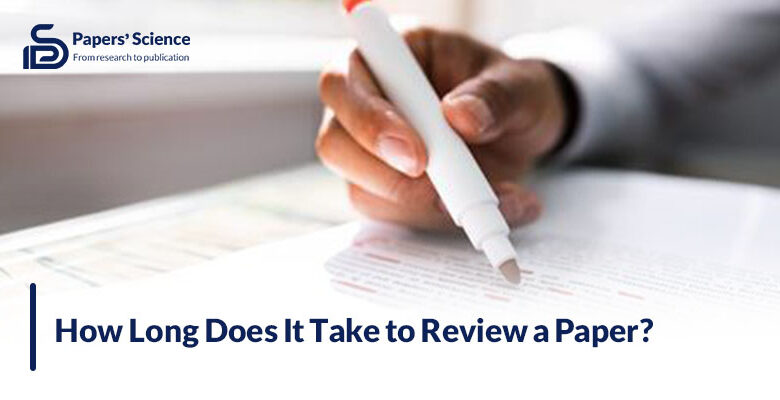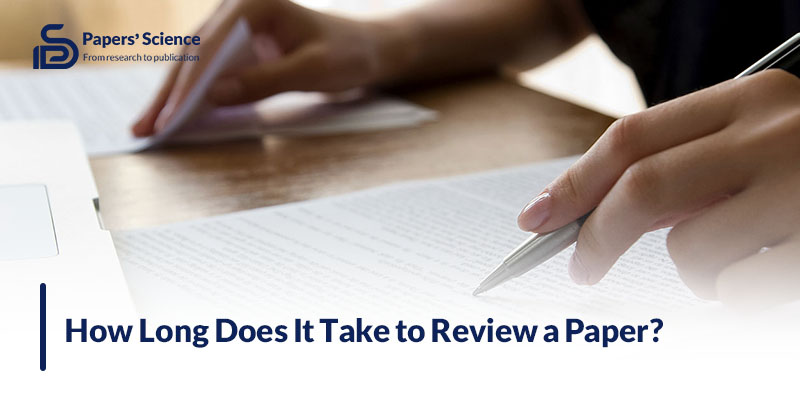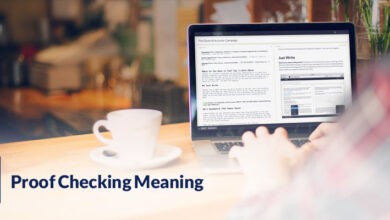How Long Does It Take to Review a Paper?

If you were immersed in research, you would likely be wondering how long it takes to review a paper.
Whether it is a research paper or a review paper, you will need time to find your answer within the article.
Do not worry; this article aims to assess the amount of time you should dedicate to comprehending a paper or how much time you need to locate your specific answer within a scientific paper.
So, let’s explore together what factors can influence the time you should invest in reading!
On average, how much time is needed to read an article?
The time required to read a scientific article can vary widely, influenced by factors such as the article’s length or the reader’s familiarity with the subject matter.
On average, a standard research paper of 10-15 pages might take anywhere from 30 minutes to an hour to read thoroughly.
Review articles or shorter pieces may be absorbed more quickly, often in 15-30 minutes.
However, when delving into highly technical or dense content or when conducting a comprehensive review, it is not uncommon for the reading time to extend beyond an hour.
Conversely, a brief editorial or news article might be grasped in just a few minutes.
Ultimately, the pace of reading depends on the reader’s goals, familiarity with the topic, and the depth of understanding sought.
What are the factors affecting reviewing paper time?
The duration of a paper review process hinges on a constellation of influential factors, each exerting its unique gravitational pull.

1. The complexity of the manuscript
The intricacy of the manuscript’s content can elongate the review time. Scientific opaqueness, convoluted methodologies, or extensive datasets demand more meticulous scrutiny, inevitably stretching the evaluation timeline.
2. Reviewer expertise & availability
The availability and expertise of reviewers cast a significant shadow. Professional experts may be in high demand, leading to potential delays. Conversely, reviewers well versed in the subject matter can expedite the process, shortening the gestation period of review.
What is the process of reading the entire article? (Finding the answer & results within a scientific paper)
The process of reading an entire scientific article or pinpointing the answers and results within its intricate pages is an art that every researcher must master.
We can provide a more precise answer to the question “How long does it take to review a paper?” by saying: It depends on the time taken for each step!
So, let’s break down this process into several key steps.
· Step 1: Abstract scan
A discerning reader often begins with the abstract, a concise summary that provides a sneak peek into the paper’s essence. This initial glance helps determine whether the article aligns with one’s research interests or quest for knowledge.
· Step 2: Introduction insight
Venturing into the introduction offers valuable context. It sets the stage, explaining the “why” behind the research.
· Step3: Methodology map
Skimming the methodology section unveils the nuts and bolts of the study. It elucidates the tools, techniques, and procedures employed, offering insight into the study’s scientific validity.
· Step 4: Results reveal
The results section is the treasure trove of findings. Diligent readers scrutinize tables, figures, and data, seeking patterns and significant outcomes that contribute to the paper’s core message.
· Step 5: Discussion
The discussion section interprets the results, contextualizing them within existing research. Here, critical analysis and synthesis come into play, helping readers grasp the broader implications.
· Step 6: Conclusion closure
The conclusion neatly ties everything together, summarizing key takeaways and highlighting the paper’s contributions to the field.
· Step 7: References review
For those eager to delve deeper, perusing the reference list can lead to a goldmine of related research.
Read More: Decision in process without under review
What are the tips to increase your reading & paper comprehension time?
Enhancing reading and paper comprehension skills is crucial for researchers and scholars aiming to boost their research efficiency.
In the following, we will provide you with some tips to help you improve your reading speed and efficiency:
· Active reading
Engage with the text actively by highlighting key points, jotting down questions, and making annotations. This interaction helps reinforce understanding.
· Summarization
After each section, summarize what you have read in your own words. This exercise reinforces comprehension and retention.
· Prioritize
Focus on the paper’s key elements – abstract, introduction, methodology, results, and conclusion. These sections provide the core information.
· Practice regularly
Like any skill, reading comprehension improves with practice. Dedicate regular time to reading and analyzing scientific papers.
· Dictionary use
Do not hesitate to consult a dictionary or online resources for unfamiliar terms. A strong vocabulary aids comprehension.
Recap
The question of “How long does it take to review a paper?” is a complex one, influenced by myriad factors. It is a challenge faced by authors, reviewers, and editors alike.
In this article, we have explored the variables at play, discussed strategies for improvement, and contemplated the broader implications.

What are your experiences with paper review times? Do you have additional insights or tips to share? Please feel free to share your thoughts in the comments below.



